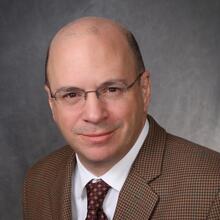Ron DeSantis, the Republican governor of Florida who declared his campaign for president this week, recently signed S.B. 1718, one of the harshest anti-immigration bills in the country. It includes numerous provisions designed to punish undocumented immigrant workers and asylum seekers, including a fund to transport them to other parts of the country and dump them, without warning, in heavily Democratic areas (a stunt that Mr. DeSantis began in the fall of 2022, flying migrants to the Massachusetts island of Martha’s Vineyard). The new law is a laundry list of penalties that scapegoat immigrants for political gain.
What is particularly offensive is the emerging narrative that God supports such anti-immigrant legislation. One of the Florida law’s sponsors, state Rep. Kiyan Michael, suggested that it was inspired from above: “Heaven has borders,” she argued. “Hell has none.”
What is particularly offensive is the emerging narrative that God supports such anti-immigrant legislation.
This is a trope that has gained momentum in xenophobic circles, appearing on bumper stickers, social media and even church signs. One implication is that any nation which builds walls is supposedly following the example of Heaven and is supported by God.
Such messaging reveals a basic misunderstanding of salvation and God’s unconditional love for us. As we see from the Gospels, Jesus preached forgiveness and inclusion, not punishment and condemnation. God’s kingdom welcomes all who believe in him and seek his forgiveness and does so without consideration for ethnicity, race or legal status. There are no divisions and no hatred in God’s kingdom.
In fact, other pieces of punitive legislation, such as the Secure the Border Act (HR 2) in Congress, are incompatible with Christ’s message to love your neighbor. In God’s kingdom, “the last shall be first, and the first will be last.” S.B. 1718 punishes the least among us, those who, by and large, work hard and simply want to survive and support their families.
That is not to say that man-made laws should be disobeyed, but not all laws are just, and many can and should be changed. For example, in its original form, S.B. 1718 also proposed to expand the definition of human smuggling to include acts like helping migrants to get to church or health care facilities, potentially criminalizing the work of local groups and individuals who work with immigrant communities. Because of opposition from faith groups and Archbishop Thomas Wenski of Miami, who argued that the bill “criminalized empathy,” the provision was altered to apply only to persons who bring an undocumented immigrant into the state.
We need and demand the labor of immigrants, but at the same time we scapegoat them, blaming them for existing social ills, and divide their families. As a moral matter, we cannot have it both ways.
We need and demand the labor of immigrants, but at the same time we scapegoat them. We cannot have it both ways.
Our nation relies on immigrant labor, including undocumented labor. Labor experts continue to report, for example, that our current inflationary problems have resulted from a lack of immigrant labor. They also project severe worker shortages in the United States in the future. Congress needs to show political courage and provide legal status and pathways to citizenship for immigrant workers to lawfully and safely contribute to our national economy.
In Florida, for example, immigrants are working to rebuild parts of the state devastated by Hurricanes Ian and Nicole. They toil in Florida’s sugar cane fields, orange tree orchards, and chicken farms. Immigrants, both legal and undocumented, undergird and strengthen Florida’s economy, not to mention its culture. S.B. 1718 threatens those contributions.
This point is apparently lost on Mr. DeSantis, who has repeatedly signaled that he will make restrictive immigration policies a centerpiece of his presidential campaign.
The truth is that, if the earth were heaven, there would not be a need for borders. All peoples, no matter their origin, would live in harmony and share the world’s resources. Unfortunately, because of our collective sin of greed, the globe is divided between the haves and have-nots—the wealthy and the poor, the secure and the endangered. And because of our human desire to horde resources, wars continue to plague the planet.
Because of our imperfections—our sin—borders are necessary. They should not be used, however, to indiscriminately shut the door on hardworking immigrants or individuals seeking protection from persecution.
S.B. 1718 and similar proposals fail this test and take us away from, not closer to, the kingdom of God.








